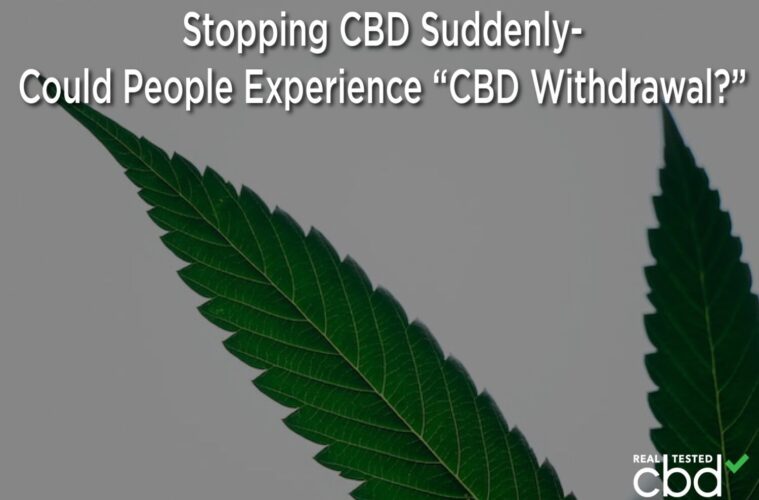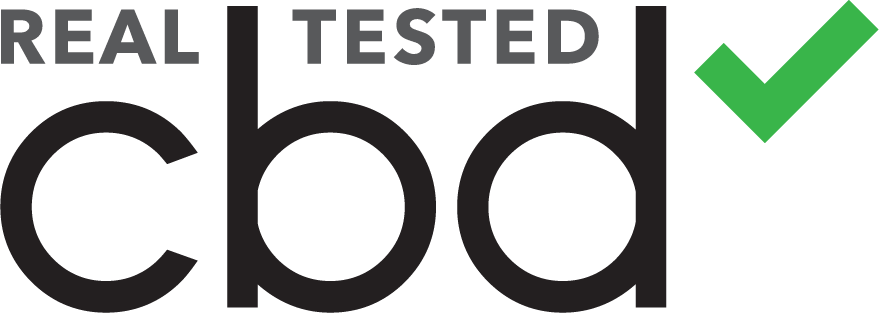View the original article about Stopping CBD Suddenly at Real Tested CBD.
Unlike psychoactive cannabinoids like delta-8 THC, CBD has a reputation for being relatively safe for most healthy adults. Since CBD is non-psychoactive, it doesn’t tend to provoke harsh side effects like paranoia or intense lethargy. Many people also report using CBD oil daily without noticing significant adverse reactions.
However, there are still questions about whether people could develop a dependency on CBD oil. If customers were to suddenly stop a long-term CBD regimen, would they experience withdrawal symptoms? If you’re thinking of incorporating CBD into your daily life, you may want to consider the implications of these side effects.
Can Stopping CBD Supplements Trigger A Withdrawal?
Currently, there’s not a ton of research looking into whether long-term CBD users experience withdrawal symptoms after quitting cold turkey. Not only is there a lack of data on this issue, but it’s tricky for researchers to distinguish whether people are genuinely experiencing “CBD withdrawal” or simply reverting to their old pre-CBD symptoms.
For example, if people successfully took CBD for an anxiety condition, it’s difficult to attribute a return of stress-related symptoms to “CBD withdrawal.” The stress of not using hemp may be a person’s natural state before using CBD oil.
Although we don’t know whether quitting CBD oil will trigger adverse reactions, preliminary trials don’t suggest this is the case. For instance, a group of scientists at GW Research tracked the effects of quitting a CBD medication in a group of thirty participants. Although some trial participants noticed effects like diarrhea and headaches when transitioning from CBD, researchers concluded these findings weren’t statistically significant. According to this trial, quitting a high-dose CBD formula doesn’t appear to trigger considerable withdrawal symptoms.
Again, this doesn’t mean that CBD can’t provoke bad reactions, nor that quitting CBD may make people feel worse in the short term. However, the withdrawal side effects related to discontinuing CBD appear less severe than quitting a substance like THC.
What About Using CBD For Withdrawal Symptoms?
Ironically, many people have begun using CBD oil to treat withdrawal symptoms from other drugs. For instance, many tobacco users are now switching to hemp pre-rolls to counter their nicotine cravings. Recent data from London suggests that “CBD cigarettes” help former nicotine users significantly reduce their tobacco addiction.
Many people who want to quit chronic marijuana use also rave about using CBD oil in their recovery plans. Anecdotally, many former cannabis users claim CBD helps them feel relaxed without inducing THC’s “high.” Some customers also taper down their THC dosage by researching high-CBD strains before completely moving away from THC.
While the research into CBD for addiction treatment is exciting, please remember there’s no conclusive evidence on using CBD as a part of drug withdrawal management. Patients should always work with a trained doctor to develop an addiction recovery plan before using CBD.
Is Your Daily CBD Oil Superior Quality?
It doesn’t appear CBD triggers significant withdrawal symptoms, but not all CBD oils are made equally. Some CBD products have excessive traces of THC, which may trigger adverse reactions in some customers. Also, it’s not uncommon to find heavy metals or solvents in poorly-manufactured CBD oils.
The only way to ensure you’re getting a top-tier CBD oil is to read the third-party lab results. You could also use resources on trusted sites like Real Tested CBD to gauge the reliability of your CBD brand. For those new to the CBD industry, we’d recommend checking Real Tested CBD’s unbiased CBD oil reviews to learn how to properly scan hemp extracts.
Learn more about CBD Withdrawal at Real Tested CBD.
Advertising disclosure: We may receive compensation for some of the links in our stories. Thank you for supporting Irvine Weekly and our advertisers.


